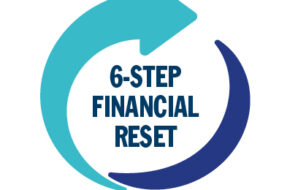
What's new in Protection

Your 6-Step Financial Reset for 2025
Anyone working in the NHS must be adept at managing change, but even the most skilled professionals may have felt…

How to take the worry out of being ill or long-term sick
As doctors and medical professionals, you see accidents and illnesses daily. You also experience how this can affect your patients’…

10 reasons to check your protection policies
Have you reviewed your protection contracts recently? It may be worth asking your adviser for a review as many new…

5 major differences between income protection and critical illness cover
As doctors or dentists, your whole career is dedicated to caring for patients who have fallen ill or had an…

Why income protection is a vital tool in your financial toolbox
Recently we have been receiving more and more enquiries from doctors and dentists about protection and in particular, income protection…

Achieve a positive return to the new normal
Many of our clients have had their finances brought into sharp focus by recent global events. I don’t think there…

4 reasons why it’s time to review your income protection cover
Don’t yawn and before you think, ‘I’m sorted, I don’t need to read on I have income protection cover’, ask…

Will you get paid if you are too ill to work?
As a doctor or dentist, your career is spent caring for patients in ill health or after an accident. But…

GP Locums: Sickness absence reimbursement
Two years on from the NHS England’s surprise announcement that it would pay towards the costs of covering for a…

5 financial tips to make a locum’s life less complicated
Being a locum has many advantages. Greater flexibility, autonomy and variety, but there are some disadvantages too. Peaks and troughs…

GP locums: Will you get your death in service benefit?
Locums are becoming a vital part of increasingly pressurised general practices, yet the NHS benefits they’re entitled to are not…

Too healthy to have a heart attack? – A cautionary tale
So how do I/we end up in A+E promising my lovely, healthy eating, Exmoor loving, regular swimming, Snowdon climbing wife…

Your locum insurance payout: who’s controlling who?
There is no doubt that GPs feel they are being micromanaged: the Quality and Outcomes Framework (QOF), centralised bureaucracy, targets,…
Personal and professional insurance cover with Legal & Medical
You’ve invested 5 years in studying to be a medical professional and numerous years in training. Your greatest asset is your ability to work yet, after such an investment of time and money, it’s an asset that is often not insured.
If you have dependants or staff who rely on you, life assurance, critical illness, income protection, locum insurance and practice insurance are all insurance cover options you need to consider having, at a cost that’s often less than filling up your car each month.
Life Assurance
Pays a lump sum or regular income to your nominated next of kin in the event of death within a specified term.
Critical Illness Cover
Pays a tax free lump sum if you are diagnosed with a specified medical condition or become totally and permanently disabled during the term of the policy.
Income Protection
Pays a regular tax free monthly income if you are incapacitated and unable to work due to illness or injury.
Locum Insurance
Pays your business expenses and locum or temporary staff requirements.
Practice Insurance
Surgery insurance specific to your GP or dental practice’s needs, at the right price.
The NHS offer sick pay, life cover and an ill-health pension for those who are members of the NHS Pension Scheme.
 How we can help you
How we can help you
Legal & Medical can help you ensure you, your family and your business are protected against the unexpected, with the right cover, at the right price based on your particular, and often frequently changing, circumstances.
Get in touch to find out more